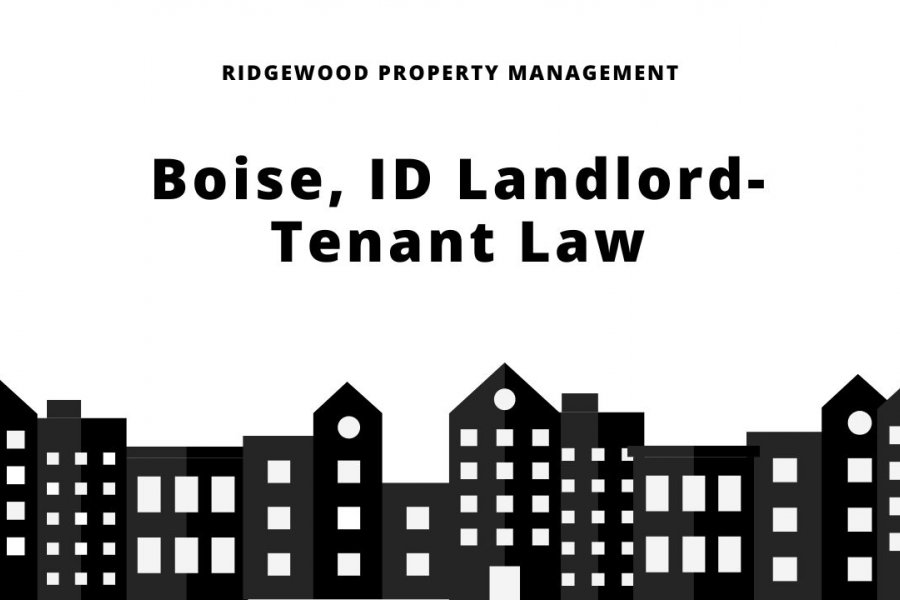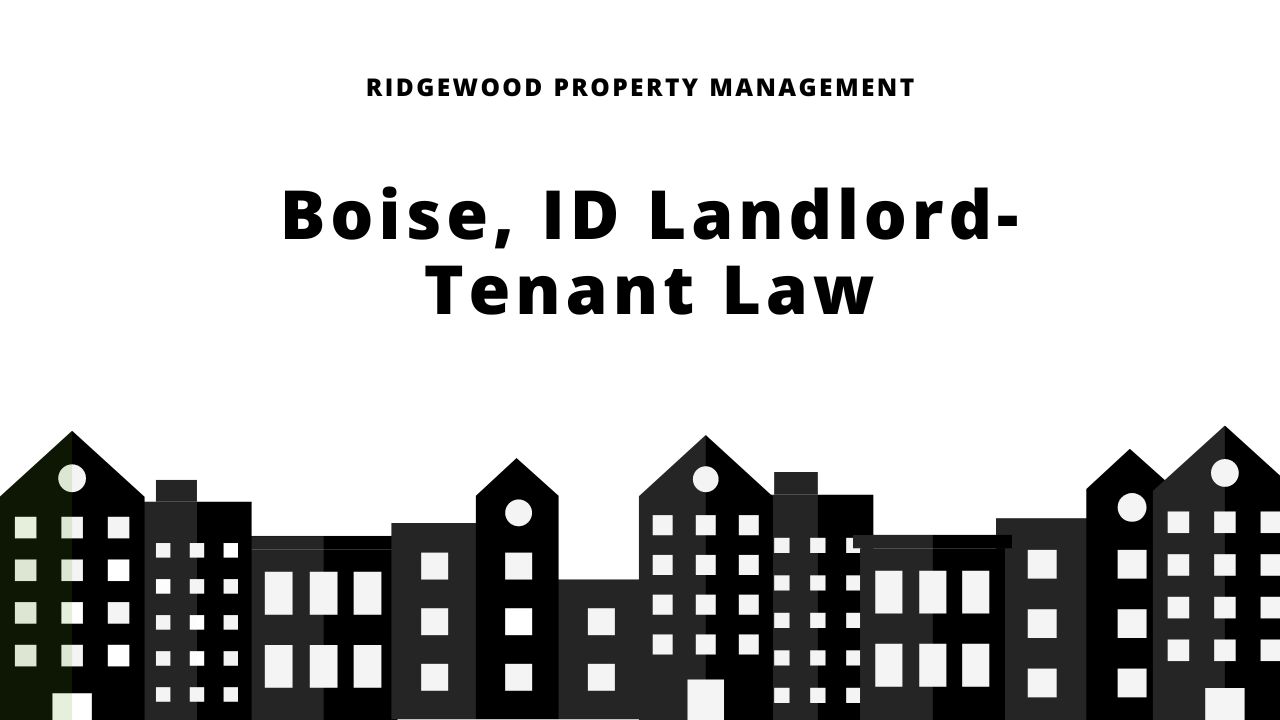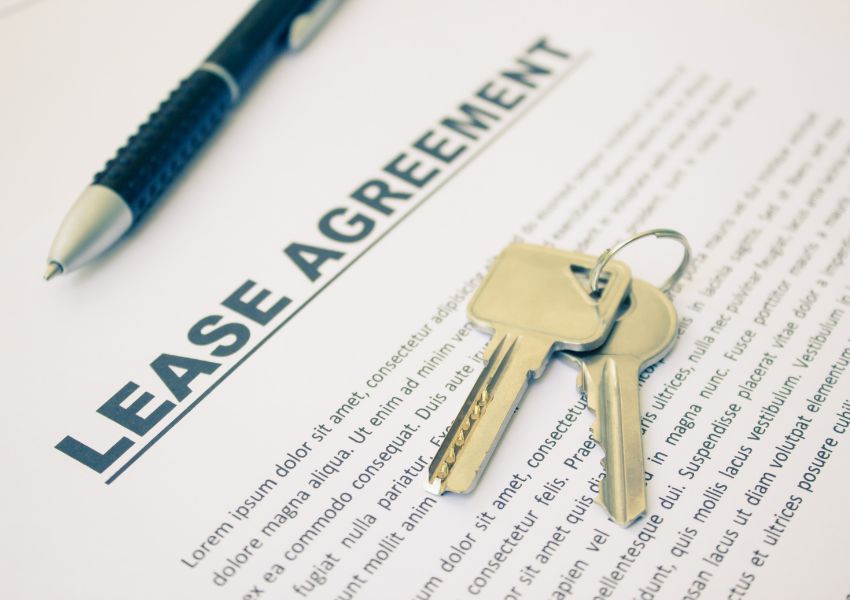

In Idaho, a lease agreement is established after a tenant starts paying rent on a landlords’ property. At that point, both the landlord and their tenant obtain certain rights and responsibilities as stated under Idaho law landlord-tenant law (Idaho Code §§ 55-301 – §§ 55-308).
At Ridgewood Property Management we believe it’s important to understand these laws, which is why we have created this overview of the Idaho rental laws.
Required Landlord Disclosures in Idaho
As a landlord in Idaho, federal law requires to make a disclosure regarding lead-based paint if real estate investors own a home built before 1978. A landlord must also let the tenant know about any lead paint concentrations used in the building.
Idaho law has yet to pass any additional legislation requiring landlords to make other disclosures to their Idaho renters.
Tenants’ Rights & Responsibilities in Idaho
Under the Idaho landlord-tenant laws, some of the rights your Idaho tenant has include:
- The right to live in a home that is habitable.
- To be notified before changes can be made to the terms of the lease.
- To continue living on the premises until the landlord has followed the proper eviction procedures to remove them or the lease ends.
- Have any repairs responded to within a reasonable period of time after sending the initial request.
- To have their security deposit returned on time.
Along with rights, tenants also have a series of responsibilities that include the following:

- Keeping the rental property in a safe and within habitable condition.
- Using fixtures, appliances, and appliances in the proper way.
- Abiding by all rental agreement policies including cleanliness.
- Making small repairs and maintenance when it’s necessary.
- Respecting the peace and quiet of other Idaho tenants or neighbors.
Landlords’ Rights & Responsibilities in Idaho
In the same way as tenants, landlords also have responsibilities under the Idaho rental laws. These include the right to:
- Enter their tenant’s rental unit to perform required or needed tasks.
- Make changes to the terms of the rental agreement as permitted by the lease.
- Make appropriate deductions on a tenant’s deposit.
- Terminate the lease agreement if a tenant violates a term.
- Enforce the terms of the lease agreement.
- Collect a security deposit before allowing a tenant to move in.
When it comes to responsibilities landlords in Idaho have, they include the following.
- The landlord must keep the property clean, safe, and habitable.
- The landlord must collect rent when it is due.
- The landlord must follow rent control laws in states that enforce them.
- The landlord must abide by the Fair Housing Act.
- The landlord must keep the tenant’s security deposit in accordance with the state’s security deposit rules.
- The landlord must carry out the eviction process in a proper way.
Overview of the Idaho Landlord-Tenant Law
Aside form the rights and responsibilities of both tenants and landlords, the Idaho rental laws also control other aspects of rental activities:
Evictions in Idaho
In Idaho, landlords have a right to evict a tenant for certain reasons. These eviction processes include:

- Failure of the tenant to pay rent.
- Failure by a tenant to adhere to the agreed upon rental terms.
- In the event a tenant doesn’t move out at the end of their lease term.
- If a tenant engages in an illegal activity.
Each of the reasons mentioned above has a specific eviction process that a landlord must abide by. For example, to evict a tenant for nonpayment of rent, you must serve them a 3-Day Notice to Pay. When it comes to evicting holdover tenants, however, you must serve them a 30-Day Notice to Quit.
Please note that retaliatory and self-help evictions are illegal in Idaho.
Security Deposits in Idaho
Just like the other 49 states, Idaho has security deposit laws in place. These laws ensure that landlords heed certain rules when handling a security deposit. For example, Idaho landlords must not make deductions to their tenant’s security deposit for any other reasons rather than in case of:
- Unpaid rent.
- Cost of damage exceeds normal wear and tear.
- Any other reason mentioned in the lease agreement.
Lease Termination
A tenant can legally terminate their lease early in one of two ways. One, if their agreement is periodic, then they can terminate it by issuing the landlord with an appropriate notice. Or two, if they have a legally justified reason to do so.
In Idaho, your tenant can legally break their agreement early for the following reasons:

- The unit is uninhabitable as described by the federal Fair Housing Act.
- If the tenant has active military duty.
- If the landlord has shown they harass the tenant.
- There is an early termination clause in the landlord and tenant agreement.
Rent Increase
Currently Idaho doesn’t have a rent control law. As such, a landlord can charge whatever amount of rent they wish.
Also, you aren’t limited by how much you can raise your rent by. But you must give your tenant an advance notice of 15 days before you can do so.
Housing Discrimination
Idaho landlords must also abide by the Fair Housing Act. The act prohibits any form of housing discrimination on the basis of race, color, nationality, gender, religion, disability, and familial status.
Idaho state law also adds to the federal list by protecting the following classes from housing discrimination:
- Chronic alcoholism
- Mental impairments
- AIDS
- Blindness
Landlord Entry
Idaho law doesn’t mandate landlords to adhere to a certain minimum notice requirement. As such, by default, you have a right to enter your tenant’s rented premises without permission.
That said, to avoid potential harassment or communication issues, have entry notification policies in the agreement.
Bottom Line
Understanding the landlord-tenant laws is incredibly important for any landlord working in the state of Idaho. So, if you have any questions regarding disclosures, security deposits or any other aspects of these landlord-tenant laws, please don’t hesitate to contact at Ridgewood Property Management!
Disclaimer: This blog should not be used as a substitute for legal advice from a licensed attorney in your state. Laws change, and this post might not be updated at the time of your reading. Please contact us for any questions you have in regard to this content or any other aspect of your property management needs.
